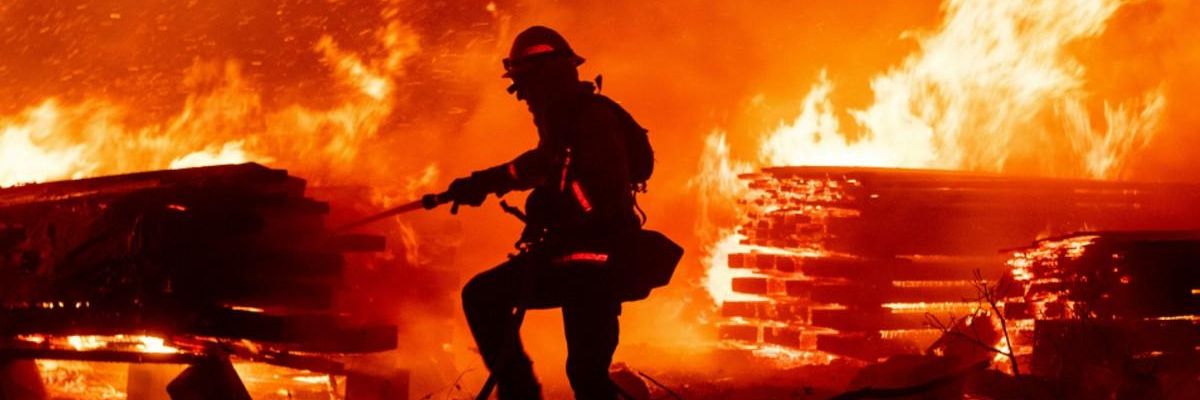The record-breaking heat and intensifying drought engulfing the western U.S. right now are a stark reminder of how climate change is loading the weather dice against us. It's making heatwaves hotter and longer, and droughts stronger. Yet, what we see today is just a fraction of what's anticipated unless serious and immediate actions are taken to reduce carbon emissions.
Last week, a European news agency leaked quotes from a working draft of the second volume of "AR6" - the forthcoming Sixth Assessment Report from the one of the world's most important independent scientific bodies, the United Nations Intergovernmental Panel on Climate Change (IPCC).
Climate change puts at risk every aspect of human life as we know it, from our health and the safety of our homes to our ability to provide food and water for the nearly 8 billion people who share this planet.
This report will not be formally released until February 2022, three months after the critical UN Climate Change Conference COP26 in Glasgow. But for anyone who follows the scientific literature or even just reads the headlines, no new report is required to understand the need to act. The dire warnings have been clear for decades: Climate change is real; it's human-caused; the impacts are serious; and there are solutions if we act now.
We humans are conducting an unprecedented, real-time experiment with the only home we have. Why does this experiment matter so critically to us? Because our entire civilization is founded on the assumption we hardly ever think about, an assumption our experiment renders invalid: that Earth's climate only varies within bounds that can be predicted based on what's happened in the past. It's as if we humans have been driving blindly into the future, navigating only by what we can see of the past in the rear-view mirror.
Now, though, we've hit a steep curve in our climate road, and it's a curve we've constructed ourselves. Massive amounts of heat-trapping gasses are building up in the atmosphere, wrapping an extra blanket around the planet. Despite the temporary drop in emissions caused by the pandemic, we know that global temperatures continue to rise faster than at any time in human history as a result. As far back as we're currently able to dive into the paleoclimatic record, we haven't found any other time when this much carbon was being discharged into Earth's atmosphere this fast. This metaphorical curve is unprecedented, and our collective wheels are already teetering at the edge of the precipice.
The case for action has never been more urgent. Again and again, assessment after assessment, the IPCC has already made it clear. Climate change puts at risk every aspect of human life as we know it, from our health and the safety of our homes to our ability to provide food and water for the nearly 8 billion people who share this planet.
The difference between a fossil fuel versus a clean energy future is nothing less than the future of civilization as we know it.
We are already starting to experience those risks today; but we know what we need to do to avoid the worst future impacts. The difference between a fossil fuel versus a clean energy future is nothing less than the future of civilization as we know it.
Where can we start? By ramping up ambition at every level: our neighborhoods and cities, our places of work and worship, our cities and our countries. Glasgow is calling and while we scientists will continue to bang the drum as hard as we can, our power only extends so far. Now, it's up to you.
Why you? Because to care about climate change and support climate action, you don't have to be a scientist, a campaigner or the citizen of a low-lying island nation. You simply have to be a human being, living here on this planet. And we're all that.

